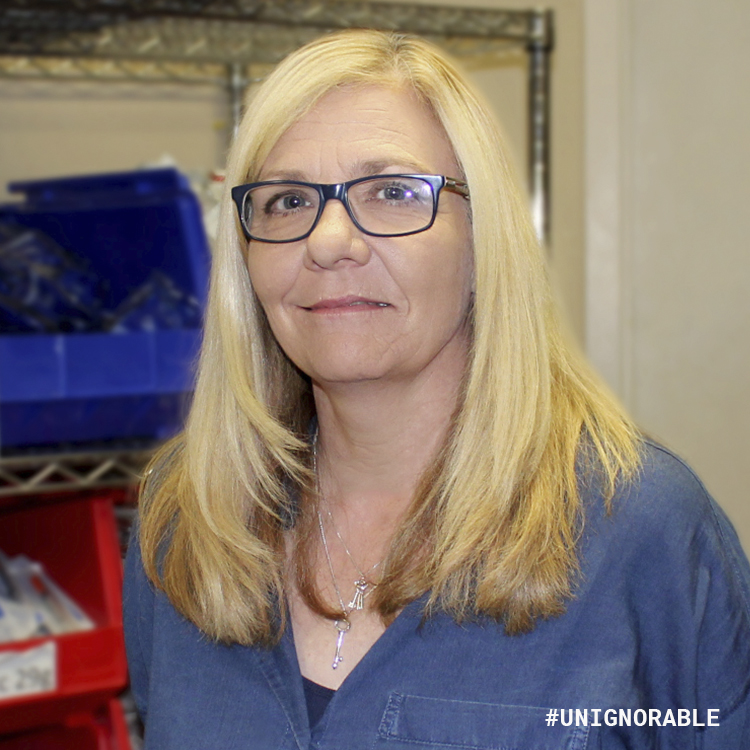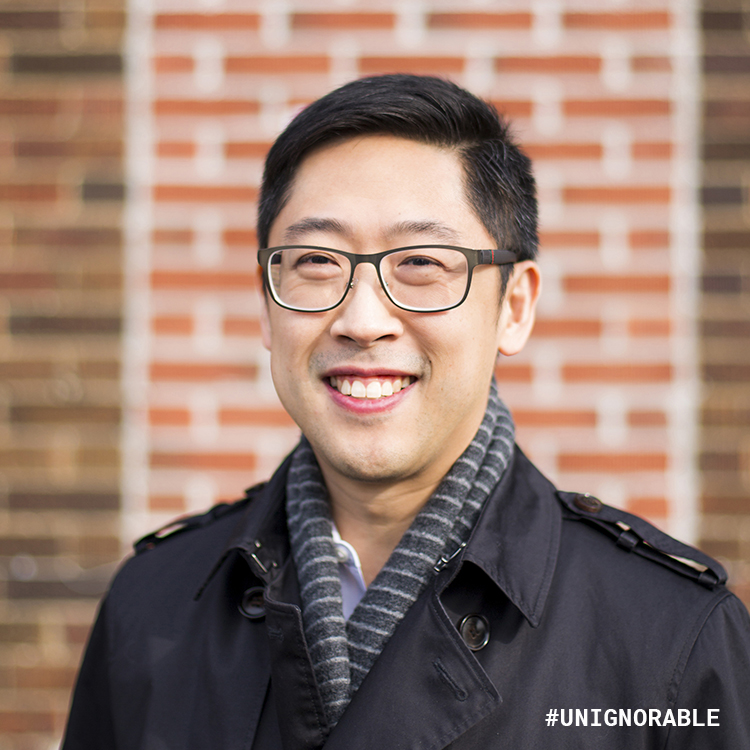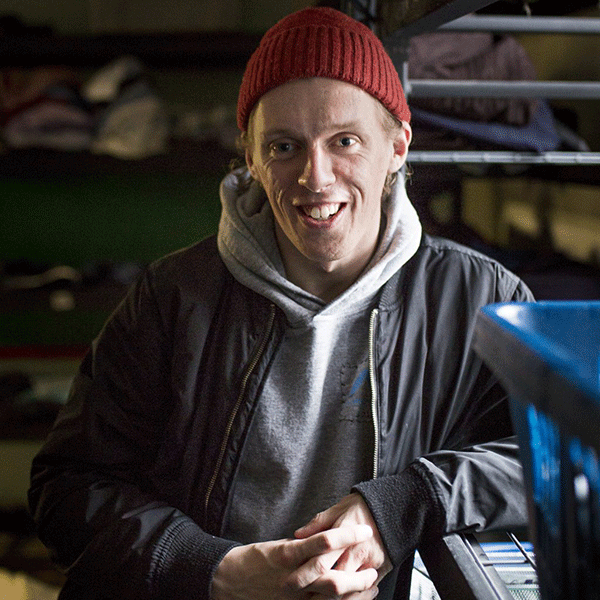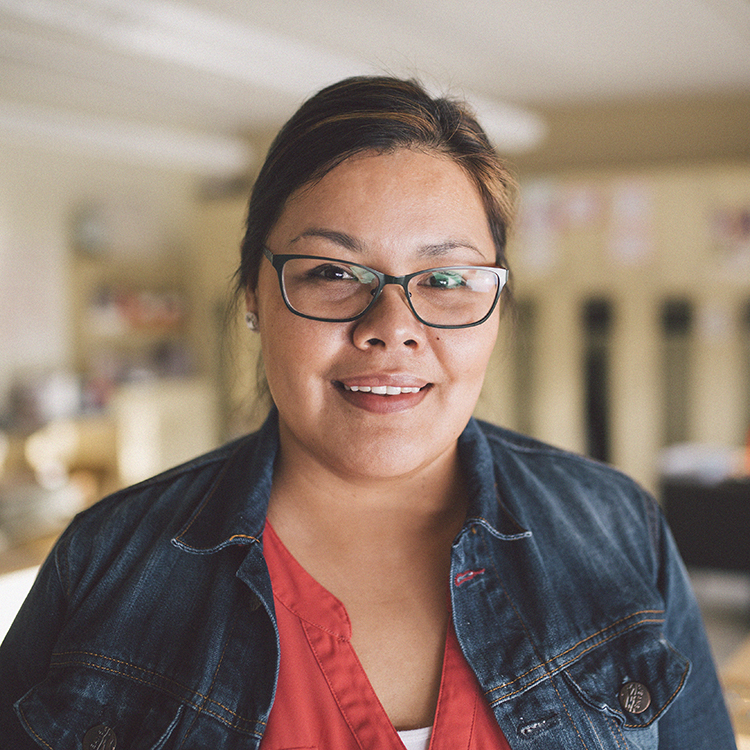
Ben Cunningham leads the frontline shelter and housing stability teams at Unity Project that help hundreds of Londoners experiencing homelessness connect to coordinated housing supports.
The road to safe housing
By Scott Taylor, Special to United Way
It’s something most of us don’t think about—or at least don’t want to think about—but the truth is more than 300 people sleep in one of London’s four emergency shelters on any given night, while many more find themselves in an unsustainable situation, such as couch surfing with friends, packed together in a single room apartment, or living in the rough outdoors.
“When someone comes in to the shelter, they’re typically in crisis because they’re experiencing homelessness, so we help to stabilize them in the moment,” says Ben Cunningham, Housing First Team Leader, Unity Project for Relief of Homelessness in London. Ben provides leadership and oversight to the Housing Stability Workers and Frontline Shelter Support Workers at Unity Project. “Once that’s done,” says Cunningham, “we start to work with them on a coordinated housing plan.”
“Compassion and trust are huge encouragements for people who’ve known little of both throughout their life. So for us it really comes down to empathy: I’m here for you. It’s OK if you fail, I’ve got your back.”
That means starting them on the road to finding safe, warm housing of their own. This includes many things most of us take for granted, including the proper identification and documents needed to rent an apartment, a source of income and a bank account.
Once that’s complete, Unity staff starts to provide housing advertisements in a price range the client can afford. And if needed, staff can help them make phone calls to landlords and even attend viewings with them.
Once secured, housing is maintained through Unity’s Housing Stability program, a United Way funded program providing intensive in-home support for participants with a history of continued or long-term shelter use. Housing Stability Workers help clients stabilize in their new home and develop greater independence, avoiding a return to the shelter.
Unity Project’s 37 beds are full every night and between six and eight people get housing of their own every month. As you might imagine, some landlords are reluctant to rent to those experiencing homelessness, or outright dismissive.
The truth is, though, it’s much easier to find employment when you have an address to put on an application. It’s easier to live a healthier lifestyle when you have your own home, easier to manage mental health concerns, and easier to address trauma that may have lead to problematic substance misuse.
“Typically, Housing Stability Workers try to advocate with landlords,” says Cunningham. “We can let the landlord know we’ll be coming into the home a couple of times each week to visit and help this person with life skills and living skills, and provide them with coaching in order for them to be successful in their tenancy,” Cunningham explains.
Even basic life skills, such as working a washing machine and cleaning an apartment properly can be elusive for some people who’ve been homeless and never been given the opportunity to learn.
“Compassion and trust are huge encouragements for people who’ve known little of both throughout their short lives,” Cunningham adds.
“A lot of times, people have their defenses up as a survival mechanism. So for us it really comes down to empathy,” says Cunningham. “I’m here for you. It’s OK if you fail, I’ve got your back.”
Scott Taylor is a former local journalist with lived experience of poverty. He moderated United Way’s panel discussion Bringing #UNIGNORABLE Issues into Focus. Read our other stories.
Together, more than ever.
“When someone comes in to the shelter, they’re typically in crisis because they’re experiencing homelessness. After we help stabilize them in the moment, then we start to work on a coordinated housing plan.”
“For too long we have only managed homelessness. Shelters should be a place to receive support to find housing.”
There’s an issue
Homelessness is hurting our community. A 1.8% vacancy rate across our region drives rents higher and makes it even harder to find decent, affordable housing, especially if you’re living in poverty. Without a stable home, it’s difficult to keep a job or stay in school, deal with addictions, raise a family or feel like you belong.
You can help
United Way supports a housing-first approach. Your generosity fuels programs that move people experiencing homelessness into independent and permanent housing with appropriate supports.
Last year, United Way invested $575,042 in affordable housing, financial products and services or emergency shelter, helping 1,569 people meet urgent basic needs and work toward long-term solutions
Here’s how
- $52 provides 1 person experiencing homelessness with a daily visit to a local coffee house for social connections and support
- $365 provides 5 people with move-in care packages once they are housed, including a grocery gift card, shower curtain, light bulbs, calendar, can opener, cleaning products and a fridge magnet with after-hours crisis service numbers
- $1,200 provides 30 days of intensive, in-home case management for 1 person new to housing after experiencing years of homelessness












